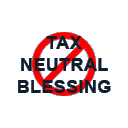CS Case Law
Citations from a few relevant Cases:
- Judge Brattin, Eastern District of California, in Universal Life Church, Inc. vs. United States, 372 F. Supp. 770, 776 (E.D. Cal 1974), stated: “…neither this court nor any branch of this government will consider the merits or fallacies of a religion. Nor will the court compare the beliefs, dogmas, and practices of a newly organized religion with those of an older, more established religion. Nor will the court praise or condemn a religion, however excellent or fanatical or preposterous it may seem. Were the court to do so, it would impinge upon the guarantee of the First Amendment.”
- In United States vs. Seeger, 380 U.S. 163 (Supreme Court 1965), we find the court addressing the concept of God and religion and holding that the test of belief in God (they put in Supreme Being) is whether a given belief that is sincere and meaningful occupies a place in the life of its possessor, parallel to that filled by the orthodox belief in God of one who is clearly religious. Assuming the holding of the court is valid in the above cases, it then necessarily follows that any lawful means of formally observing the tenets of faith of any religious body is worship within the meaning of the tax exemption provisions.
- “The Corporation Sole is the venerable creation of the common law in England and is well established under common law in California, which has legitimized the tradition and regulates the formalities attendant on the creation and continued existence of the Corporation Sole.” County of San Luis Obispo v. Ashurst (1983, 2d Dist) 146 CA 3d 380, 194 Cal Rptr 5.
- Roman Catholic Archbishop v. Shipman (1899)1079 C288, 21 p. 830. “A Corporation Sole has no need of a corporate seal, nor of a secretary, treasurer or by-laws. His own will and judgment alone regulate his acts, like any other individual acting in his own right. His possession of land, when the title is in him as an individual, can in no way be distinguished by his holding thereof as a Corporation Sole, when the title is in the corporation.”
- In the Massachusetts case of The Overseers of the Poor of the City of Boston v. David Sears 39 Mass (2Pick) 122 at 128 (1839) the Massachusetts Supreme Court described some of the distinguishing aspects between a corporation sole and corporation aggregate:
“. . .In all these aspects, the distinction between an aggregate and sole corporation, growing out of the different modes of constitution and forms of action, is striking and obvious. A bishop or parsons acting in a corporate capacity and holding property to him and his successor in right of office, has no need of a corporate name, he requires no particular, he performs all legal acts under his own seal, In his own name and name of office; his own will alone regulates his acts and he has no occasion for a secretary, for he need not keep a record of his acts, need no treasurer, for he has no personal property except the rents and proceeds of the corporate estate, and these he takes to his own use when received. By-laws are unnecessary, for he regulates his own action, by his own will and judgment, like any other individual acting in his own right. But it is not necessary to pursue the comparison into all its details; the points suggested are sufficient to show the legal distinctions between the two classes of corporations.” - The Overseers case was decided in 1839. In a more recent decision in 1983, the California Second Appellate District decided County of San Luis Obispo v. Delmar Ashurst 146 Cal.App.3d 380, 194 Cal.Rptr. 5 (1983) wherein it insightfully stated: “. . .The issue as defined by the trial court, “is whether the assets of its corporation sole are the personal assets of its titular head, and thus subject to execution for his or her debts.” The answer on the basis of legal authorities defining the corporation sole and its attributes must be, as the trial court concluded, an unequivocal “no”.





